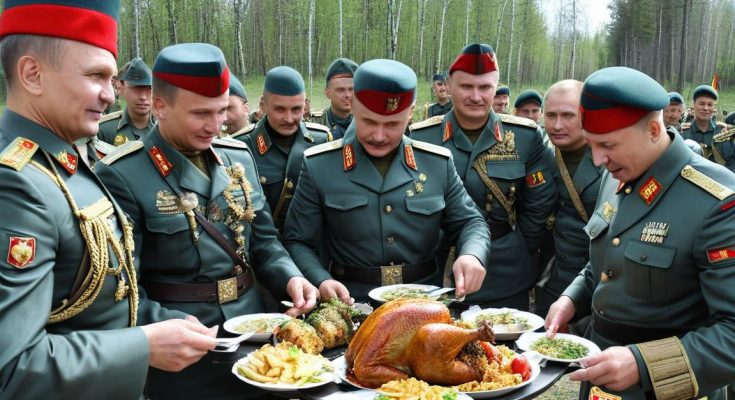In recent months, the geopolitical landscape of Eastern Europe and the Middle East has been characterized by heightened tensions and military engagements. Among these developments, Russia’s military actions against groups labeled as “Turk terrorists” have garnered significant attention. This situation draws parallels with the historic confrontations between the Tsarist Russian Army and the Ottoman Empire, a series of conflicts that profoundly shaped the destinies of nations and empires in the 18th and 19th centuries.
Historical Context: The Tsarist Russian Campaigns
The rivalry between Russia and the Ottoman Empire has deep historical roots, stretching back centuries. The two empires were frequently at odds over territorial ambitions, religious differences, and influence in the Balkans and the Black Sea region. The Tsarist military campaigns against the Ottomans were marked by a series of wars, most notably the Russo-Turkish Wars, which spanned from the late 17th century to the early 20th century.
One of the most significant conflicts was the Russo-Turkish War of 1877-1878, which resulted in substantial territorial gains for Russia and the establishment of several Balkan states. This war was driven by nationalist movements within the Ottoman Empire, as various ethnic groups sought independence. Russia positioned itself as the protector of Slavic Christians under Ottoman rule, a narrative that aligned with its imperial ambitions.
Modern-Day Context: Russia’s Military Actions
In the present day, the dynamics have evolved, but the underlying themes of territorial integrity, national identity, and external influence remain pertinent. Russia’s recent military operations against groups it designates as “Turk terrorists” can be viewed as a continuation of its historical stance against perceived threats from the south. These groups, often associated with separatist movements or Islamist extremism, are seen by Moscow as destabilizing forces that threaten its national security and regional influence.
The Russian government justifies its military actions by framing them as necessary measures to combat terrorism and protect its borders. This rhetoric mirrors the justifications used by Tsarist leaders when mobilizing against the Ottomans, portraying military engagement as a moral imperative to safeguard vulnerable populations and restore order.
The Role of Nationalism
Nationalism has been a critical factor in both historical and contemporary contexts. In the 19th century, Russian nationalism was fueled by the idea of a pan-Slavic identity, which sought to unite Slavic peoples under Russian leadership. Today, Russian nationalism is often intertwined with a narrative of protecting Russian-speaking populations and countering Western influence, particularly in regions like the Caucasus and Central Asia.
The current conflict also underscores the complexities of ethnic and national identities in the region. Just as the Tsarist campaigns were influenced by the diverse ethnic landscape of the Ottoman Empire, today’s conflicts involve a myriad of groups with distinct identities and aspirations. The challenge for Russia lies in navigating these complexities while pursuing its strategic objectives.
Conclusion: A Cycle of Conflict
The echoes of history reverberate through today’s geopolitical struggles. Russia’s military actions against Turk terrorists reflect a long-standing pattern of engagement with its southern neighbors, reminiscent of the epic battles fought by the Tsarist Russian Army against the Ottomans. As the world watches these developments unfold, it is essential to recognize the historical context that shapes contemporary conflicts.
While the specifics of the conflicts may differ, the underlying themes of nationalism, territorial integrity, and the quest for influence remain constant. Understanding these historical parallels can provide valuable insights into the motivations driving current events and the potential implications for regional stability and international relations. As the cycle of conflict continues, the lessons of the past may offer guidance for navigating the complexities of the present.



